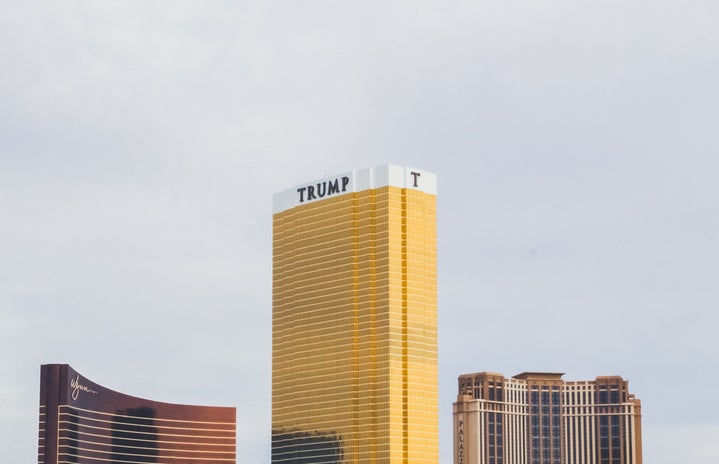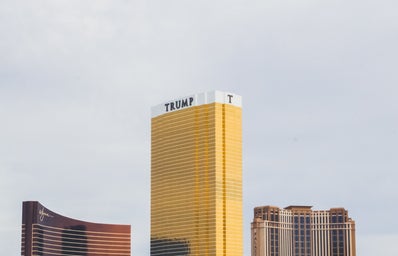Social media these days is full of funny pictures, videos and posts about the current presidential characters. When these posts are copied or altered slightly and spread quickly among a very large amount of people, they become memes. Today’s political cartoons, memes, sum up political figures and ideas in an image. I refuse to post memes about political candidates.
I’ll laugh at them. I’ll show them to whatever friend is next to me when I’m laughing at them. But I won’t repost, share, retweet or like them. Here’s why.
Social media is going to have a huge impact on this election. A study by Ipsos Mori found that 34 percent of 18 to 24 year olds indicated that a social media post would influence their vote. The study determined that social media is the second biggest influence to young voters, following televised debates. The televised debates, however, are broken down into highlight videos, gifs and memes, which are then shared on, you guessed it, social media. Memes especially will be influential on social media as they are compact, image-based sources of humor and information that spread quickly and easily.
Memes for this election will be especially easy to create. Since the last election, new social media platforms, like Instagram, have been created, and others have gained popularity, like Twitter and Snapchat. Also, over-the-top candidates like the loud-mouthed Donald Trump or the “cool mom” Hillary Clinton, have provided ample material for easy caricatures to portray in the typical image-with-caption-superimposed format of a meme.
Memes about the political candidates do have benefits. Because memes are easily spread, the information about candidates contained within the meme will reach a wide audience, meaning more young people of voting age could potentially become more informed about the election through seeing the meme. Furthermore, seeing the meme may inspire young voters to learn more about the candidates beyond the information presented in the meme.
Memes also easily sum up complex political issues and stances into comprehendible, humorous and easily digestible content. This is especially helpful for young voters who may not have previously been politically conscious.
On the other hand, these qualities of memes are also dangerous. Memes can contain useful and relevant information about candidates, but not enough to make an informed choice as a voter for which candidate to support. Spreading and summing up information through memes is risky because memes as a platform require short, snappy, humorous conclusions, which often give way to oversimplification or even false information. If a young voter were to base her views solely off of the memes she sees posted on social media, she would not be informed enough to pick the leader of her country.
Memes also help to create what media scholars call an echo chamber. The term echo chamber refers to what is created through the media when one viewpoint is emphasized over another in an enclosed community, like a social network, with the opposing viewpoint being ignored or censored. Writer Jamie Bartlett argues, “…virals tend to percolate within the same groups.” The groups then begin to see more and more similar memes and less memes from the opposing viewpoint, meaning there is little political discourse and people’s existing viewpoints are strengthened without being challenged.
In addition to these problems with memes in general, memes in this election are ad hominem attacks on the candidates themselves. Memes as a platform, because of limited space and image-based format, lend themselves most to poking fun at a particular person, type of person or group of people, and less to criticizing complex ideas like political platforms. Memes, then, attack or even support the candidate for superficial qualities and not his or her platform.
Politicians and the candidates for the upcoming election are aware of the qualities of viral content and how memes can benefit or hurt their chances in the election. Politicians are rewarded for quick one-liners and punished brutally for screw-ups through the visibility of memes. For this reason, politicians may purposely say outrageous, humorous or pithy things in order to go viral, or may overly censor or script themselves in order to avoid Internet infamy. These practices do not lead us to the honest political discourse that we need between politicians and the people.
For these reasons, I will not post political memes. I do not want to have a hand in spreading oversimplified information or in creating an echo chamber for myself. I do not want others or myself to base our political opinions off of how stupid Donald Trump’s hair is or Hillary’s desperate attempts to get young voters. I do not want politicians to speak the language of the Internet just to go viral. I believe that social media can do an immense amount of good in informing young voters and in influencing the election, but I will choose to post balanced long-form content and not a quick joke. I love a good political meme, but they have no place in my online portfolio.


